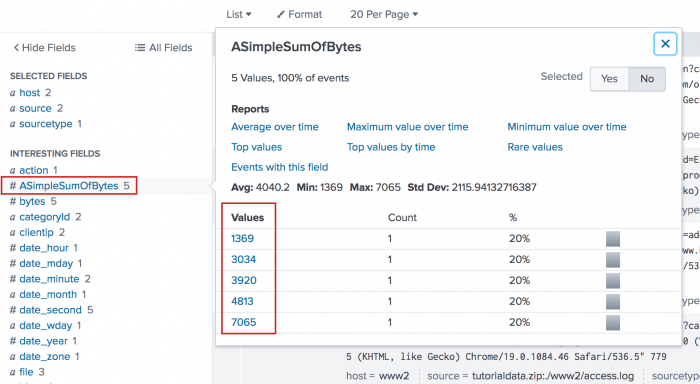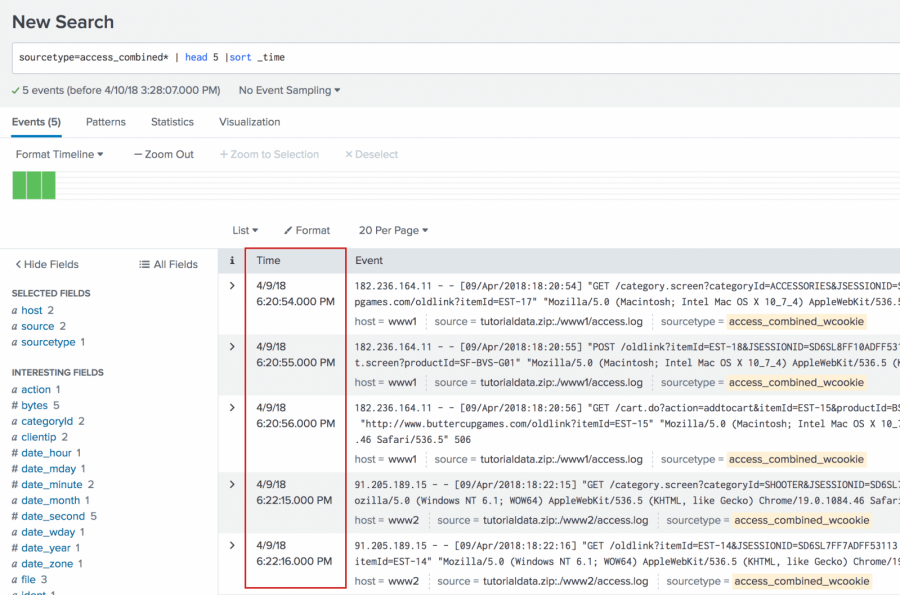
Streamstats Splunk Documentation
The streamstats command calculates statistics for each event at the time the event is seen. To learn more about the streamstats command see How the streamstats command works. Do you need to get a streaming count or a total count. The streamstats command calculates a running total of the bytes for each host into a field called. Eventstats is calculating the sum of the bytes_out and renaming it total_bytes_out grouped by source IP. The streamstats command calculates statistics for each event at the time the event is seen in a streaming manner. Open Splunk and access the search bar Craft your search query or use an existing one..
If false the search uses the field value from the previous event. I know that I can sort It and use a command like streamstats. For the first event there are no previous events The value for the bytes field is returned. Add a running count to each search result In the following search for each search result a new. Streamstats window1 currentf lastDATE as DATENEXT by KEY_ID. The streamstats command calculates a running total of the bytes for each host into a field called..
The streamstats command calculates statistics for each event at the time the event is seen. To learn more about the streamstats command see How the streamstats command works. Do you need to get a streaming count or a total count. The streamstats command calculates a running total of the bytes for each host into a field called. Eventstats is calculating the sum of the bytes_out and renaming it total_bytes_out grouped by source IP. The streamstats command calculates statistics for each event at the time the event is seen in a streaming manner. Open Splunk and access the search bar Craft your search query or use an existing one..
Use the streamstats command to produce a cumulative count of the events Then use the eval command to create a simple test If the value of the count field is equal to 2 display yes in. You can use the streamstats command with other commands to create a set events with hourly timestamps For example you can use the repeat function with the eval. The streamstats command adds a cumulative statistical value to each search result as each result is processed For example you can calculate the running total for a. The streamstats command calculates a running total of the bytes for each host into a field called total_bytes The running total resets each time an event satisfies the actionREBOOT. My long set of SPL starts with the typical filtering on the primary search line It then uses various eval foreach streamstats and eventstats commands to process..

Comments